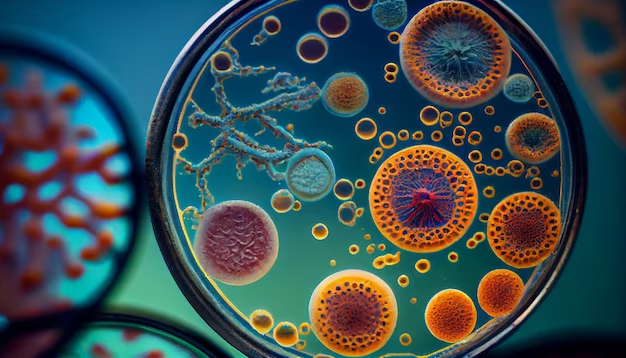Ph.D. in Dairy Microbiology: Introduction, Admission, Registration, Eligibility, Duration, Fees, Syllabus 2024

Introduction:
A Ph.D. in Dairy Microbiology delves into the study of microorganisms that affect dairy products. It encompasses the examination of beneficial microbes that are used in the production of cheese, yogurt, and other fermented products, as well as harmful bacteria that can cause spoilage or disease. The program aims to equip students with the advanced knowledge and skills needed to tackle complex problems in the dairy industry through innovative research.
Admission Process:
- Application Submission: Complete an online application, including detailed personal and academic information.
- Transcripts: Provide transcripts from all undergraduate and postgraduate education, showing a strong academic record.
- Letters of Recommendation: Submit three to four letters from academic or professional references who can attest to your suitability for doctoral research.
- Statement of Purpose: Write a comprehensive statement outlining your research interests in dairy microbiology, your career goals, and your motivation for pursuing a Ph.D.
- Research Proposal: Depending on the program, a research proposal might be required to demonstrate your understanding of the field and potential research topics.
- Interview: An interview with faculty members to discuss your qualifications, research interests, and fit for the program.
Eligibility:
- Educational Background: A master's degree in microbiology, biochemistry, food science, or a related field.
- GPA: A minimum GPA, often around 3.0 or higher, is typically required.
- Research Experience: Demonstrated experience or strong potential for conducting scientific research, preferably related to microbiology or dairy.
- Laboratory Skills: Practical skills in microbiological techniques and laboratory procedures.
- Language Skills: For non-native English speakers, proficiency in English is necessary (TOEFL or IELTS scores may be required).
Completion Time:
The completion time for a Ph.D. in Dairy Microbiology generally ranges from four to six years, depending on the student’s research project, dissertation scope, and full-time or part-time enrollment status.
Career Opportunities:
- Academic Researcher: Conduct research and teach at universities and colleges.
- Quality Control Manager: Oversee the safety and quality of dairy products in manufacturing settings.
- R&D Specialist: Develop new dairy products and improve existing ones using microbiological expertise.
- Regulatory Affairs Manager: Ensure dairy products meet government standards and regulations.
- Technical Sales Manager: Provide technical support and expertise for companies selling dairy-related products and equipment.
Syllabus:
- Advanced Microbial Genetics: Study of genetic manipulation and genomic analysis techniques relevant to dairy microbes.
- Fermentation Science: In-depth analysis of fermentation processes in dairy products.
- Food Safety and Pathogen Control: Methods and strategies for detecting and controlling pathogens in dairy products.
- Probiotics and Functional Foods: Exploration of the health benefits of probiotics and their use in dairy products.
- Dairy Product Technology: Comprehensive study of the technology used in dairy processing and production.
Internship Opportunities:
- Industrial Placements: Gain practical experience in dairy production facilities or with food safety authorities.
- Research Internships: Participate in cutting-edge research projects at research institutions or universities.
- International Experience: Opportunities to study or conduct research abroad, enhancing global understanding of dairy microbiology.
Scholarships and Grants:
- University Fellowships: Offered by academic institutions to cover tuition and provide a stipend.
- Research Grants: Available from government agencies, industry groups, and international organizations to support specific research projects.
- Travel Grants: Funds to attend scientific conferences or workshops related to dairy microbiology.
FAQs:
What is the focus of a Ph.D. in Dairy Microbiology?
The focus is on understanding and manipulating the microorganisms involved in the production and spoilage of dairy products.
Can I pursue this Ph.D. part-time?
Some programs offer part-time enrollment options, but this will extend the completion time.
What are typical dissertation topics in this field?
Topics might include studies on improving the shelf-life of dairy products, developing new probiotic formulations, or understanding the microbial ecology of cheese aging.
What skills are most important for success in this field?
Skills in microbiological analysis, critical thinking, problem-solving, and data analysis are crucial.
